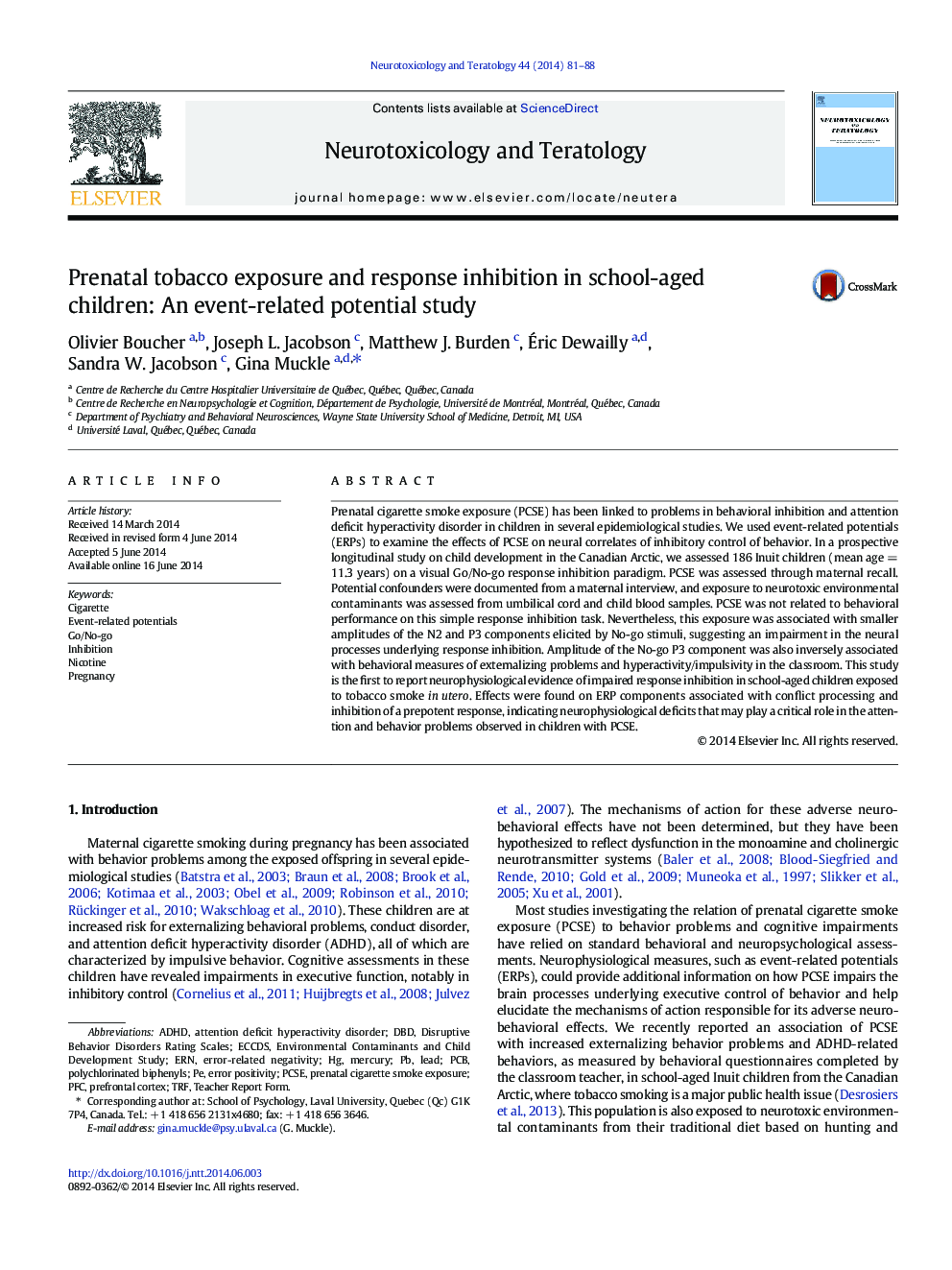| Article ID | Journal | Published Year | Pages | File Type |
|---|---|---|---|---|
| 2591032 | Neurotoxicology and Teratology | 2014 | 8 Pages |
•We used ERPs to study the effects of prenatal cigarette smoke exposure (PCSE).•Children performed a Go/No-go task to elicit the N2, P3, ERN, and Pe components.•PCSE was associated with decreased No-go N2 and No-go P3 amplitudes.•Effects remained statistically significant after control for confounders.•No effect was found on the error-related ERN and Pe components.
Prenatal cigarette smoke exposure (PCSE) has been linked to problems in behavioral inhibition and attention deficit hyperactivity disorder in children in several epidemiological studies. We used event-related potentials (ERPs) to examine the effects of PCSE on neural correlates of inhibitory control of behavior. In a prospective longitudinal study on child development in the Canadian Arctic, we assessed 186 Inuit children (mean age = 11.3 years) on a visual Go/No-go response inhibition paradigm. PCSE was assessed through maternal recall. Potential confounders were documented from a maternal interview, and exposure to neurotoxic environmental contaminants was assessed from umbilical cord and child blood samples. PCSE was not related to behavioral performance on this simple response inhibition task. Nevertheless, this exposure was associated with smaller amplitudes of the N2 and P3 components elicited by No-go stimuli, suggesting an impairment in the neural processes underlying response inhibition. Amplitude of the No-go P3 component was also inversely associated with behavioral measures of externalizing problems and hyperactivity/impulsivity in the classroom. This study is the first to report neurophysiological evidence of impaired response inhibition in school-aged children exposed to tobacco smoke in utero. Effects were found on ERP components associated with conflict processing and inhibition of a prepotent response, indicating neurophysiological deficits that may play a critical role in the attention and behavior problems observed in children with PCSE.
